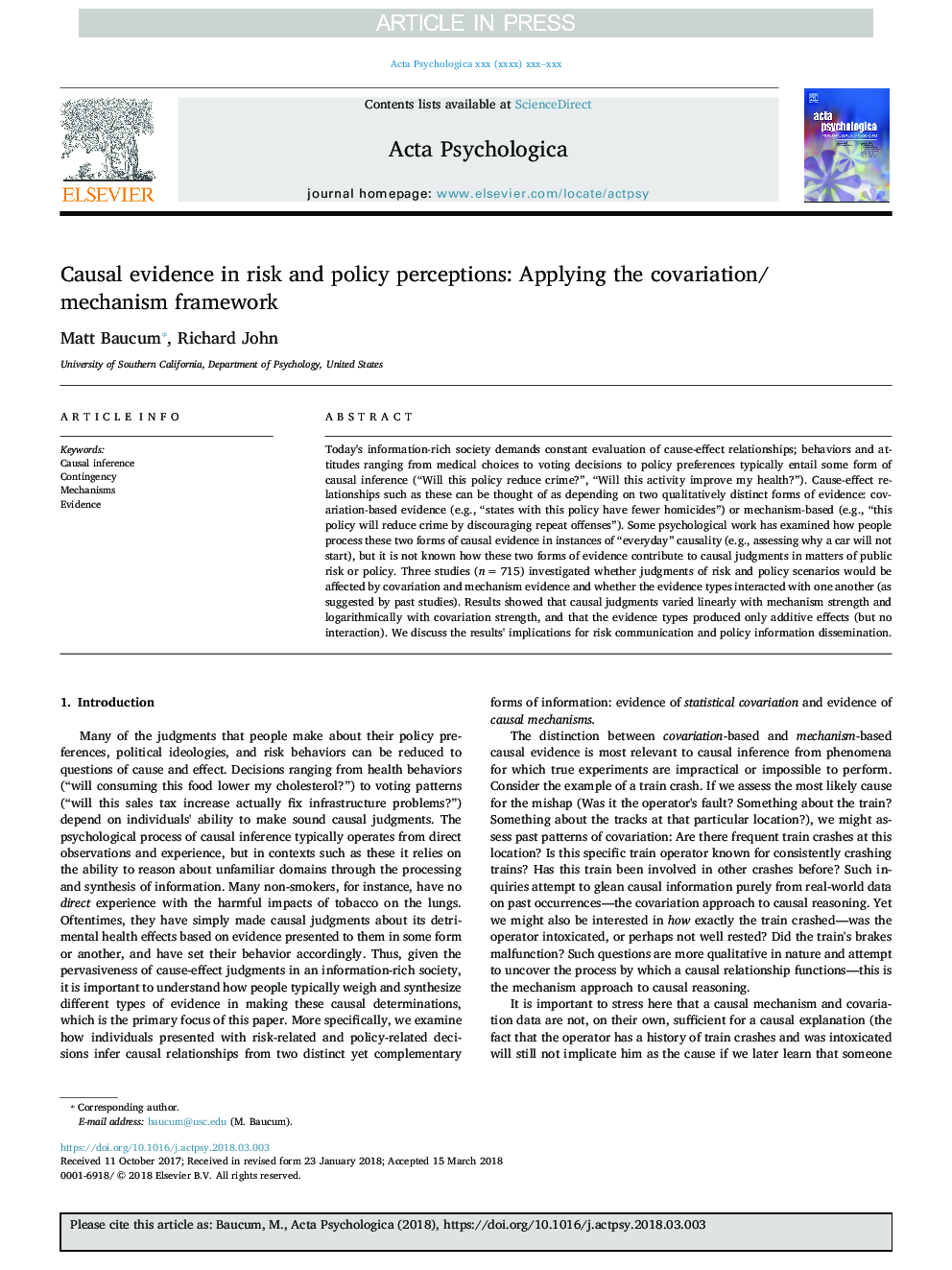| کد مقاله | کد نشریه | سال انتشار | مقاله انگلیسی | نسخه تمام متن |
|---|---|---|---|---|
| 7276714 | 1473572 | 2018 | 14 صفحه PDF | دانلود رایگان |
عنوان انگلیسی مقاله ISI
Causal evidence in risk and policy perceptions: Applying the covariation/mechanism framework
ترجمه فارسی عنوان
شواهد علمی در درک ریسک و سیاست: استفاده از چارچوب متغیر / سازوکار
دانلود مقاله + سفارش ترجمه
دانلود مقاله ISI انگلیسی
رایگان برای ایرانیان
کلمات کلیدی
نتیجه گیری علمی، احتمالی، مکانیسم، شواهد و مدارک،
موضوعات مرتبط
علوم زیستی و بیوفناوری
علم عصب شناسی
علوم اعصاب شناختی
چکیده انگلیسی
Today's information-rich society demands constant evaluation of cause-effect relationships; behaviors and attitudes ranging from medical choices to voting decisions to policy preferences typically entail some form of causal inference (“Will this policy reduce crime?”, “Will this activity improve my health?”). Cause-effect relationships such as these can be thought of as depending on two qualitatively distinct forms of evidence: covariation-based evidence (e.g., “states with this policy have fewer homicides”) or mechanism-based (e.g., “this policy will reduce crime by discouraging repeat offenses”). Some psychological work has examined how people process these two forms of causal evidence in instances of “everyday” causality (e.g., assessing why a car will not start), but it is not known how these two forms of evidence contribute to causal judgments in matters of public risk or policy. Three studies (nâ¯=â¯715) investigated whether judgments of risk and policy scenarios would be affected by covariation and mechanism evidence and whether the evidence types interacted with one another (as suggested by past studies). Results showed that causal judgments varied linearly with mechanism strength and logarithmically with covariation strength, and that the evidence types produced only additive effects (but no interaction). We discuss the results' implications for risk communication and policy information dissemination.
ناشر
Database: Elsevier - ScienceDirect (ساینس دایرکت)
Journal: Acta Psychologica - Volume 186, May 2018, Pages 90-103
Journal: Acta Psychologica - Volume 186, May 2018, Pages 90-103
نویسندگان
Matt Baucum, Richard John,
